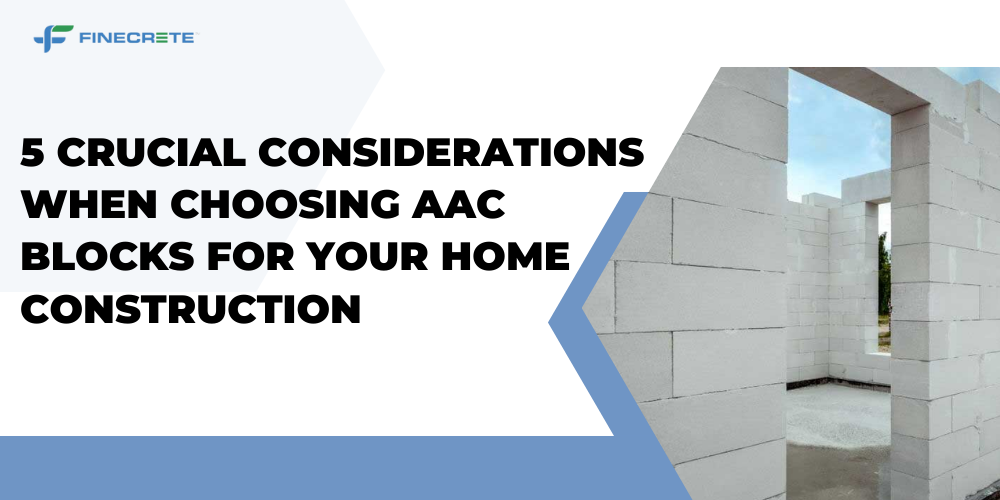When it comes to constructing a home, making informed decisions about building materials is paramount. Autoclaved Aerated Concrete (AAC) blocks have gained popularity for their lightweight and energy-efficient properties. However, not all AAC blocks are created equal. Here are five essential considerations to keep in mind when choosing AAC blocks for your home construction.
- Quality and Density:
The quality and density of AAC blocks play a pivotal role in determining their strength and durability. Higher-density blocks generally offer better compressive strength, making them more suitable for load-bearing structures.
While evaluating Autoclaved Aerated Concrete blocks offered by suppliers, you should inquire about their density, which is typically measured in kilograms per cubic meter (kg/m³). Opt for blocks with a density ranging from 600 kg/m³ to 900 kg/m³ for optimal structural integrity.
- Thermal Insulation Properties:
One of the standout features of AAC blocks is their excellent thermal insulation capabilities. While selecting AAC blocks for your home, you should consider the thermal conductivity, measured in W/mK. Lower thermal conductivity indicates better insulation.
AAC blocks with a thermal conductivity value of around 0.11 W/mK to 0.16 W/mK are considered highly efficient in maintaining a comfortable indoor temperature while reducing energy consumption for heating or cooling.
- Fire Resistance:
AAC blocks inherently possess high fire resistance due to their inorganic composition. However, it is crucial to check for the specific fire rating of the Autoclaved Aerated Concrete blocks you intend to use.
It is important to look for blocks that comply with local building codes and standards, ensuring they meet or exceed the necessary fire safety requirements. Opting for AAC blocks that are fire-resistant for a longer duration provides an added layer of protection for your home.
- Moisture Resistance and Breathability:
Moisture-related issues can significantly impact the longevity of a structure. AAC blocks should have good moisture resistance to prevent water absorption, which can lead to mold growth and structural deterioration. At the same time, it is essential to choose blocks that allow for breathability, enabling any trapped moisture to evaporate.
You need to opt for Autoclaved Aerated Concrete blocks with the right balance between moisture resistance and breathability, so as to ensure a healthy and long-lasting home environment.
- Ease of Handling and Installation:
The process of construction can be time-consuming. Choosing Autoclaved Aerated Concrete blocks that are easy to handle and install can contribute to overall project efficiency. You need to consider the size and weight of the blocks, as well as the ease with which they can be cut or shaped on-site.
Also, you have to inquire about the availability of specialized installation systems or services that can streamline the construction process. Opting for AAC blocks that facilitate quicker and more straightforward installation can impact both the timeline and cost of your construction project in a positive way.
Choosing the right AAC blocks for your home construction requires careful consideration of various factors. Take the time to research and consult with experts to ensure that the AAC blocks you choose align with your specific construction requirements and local building regulations.






